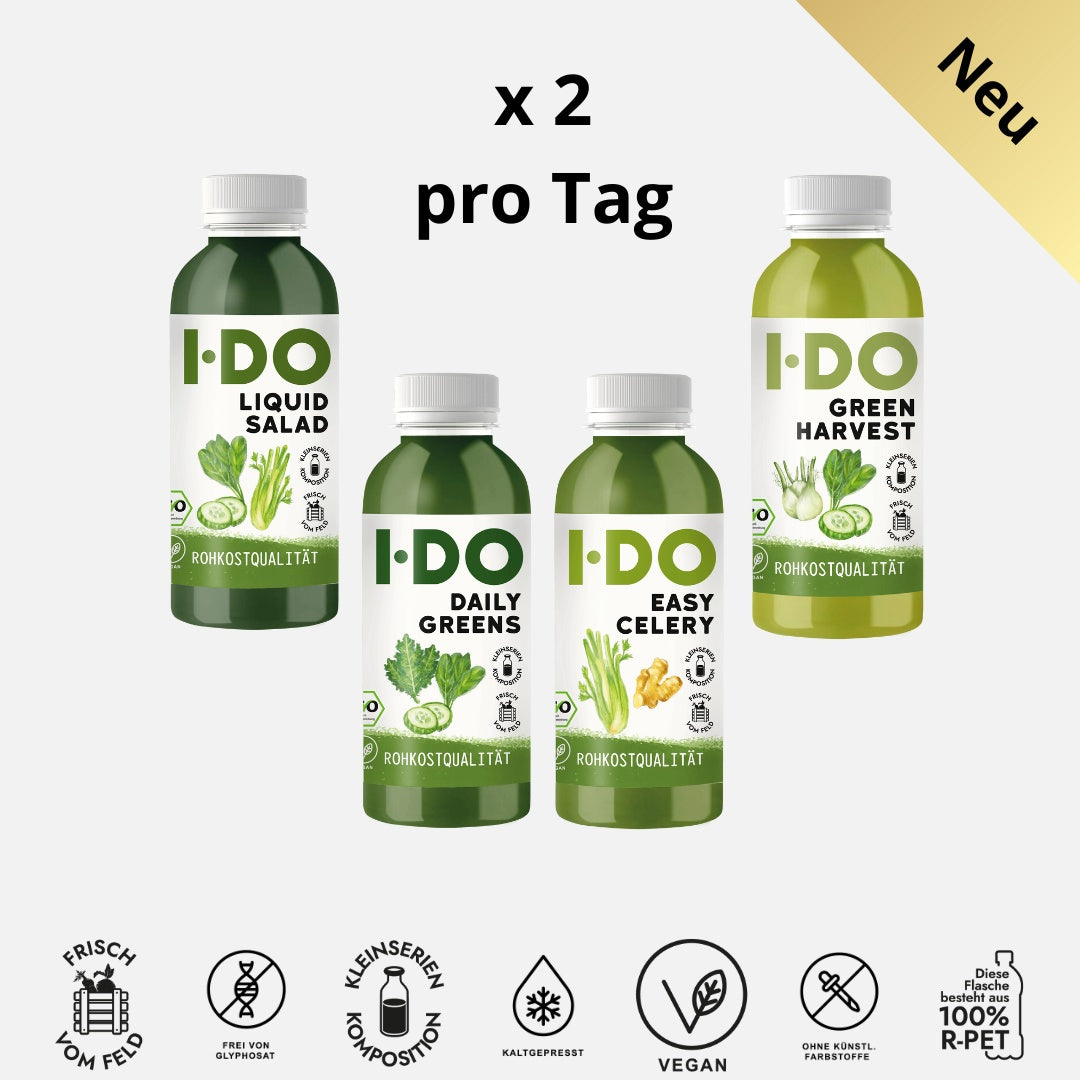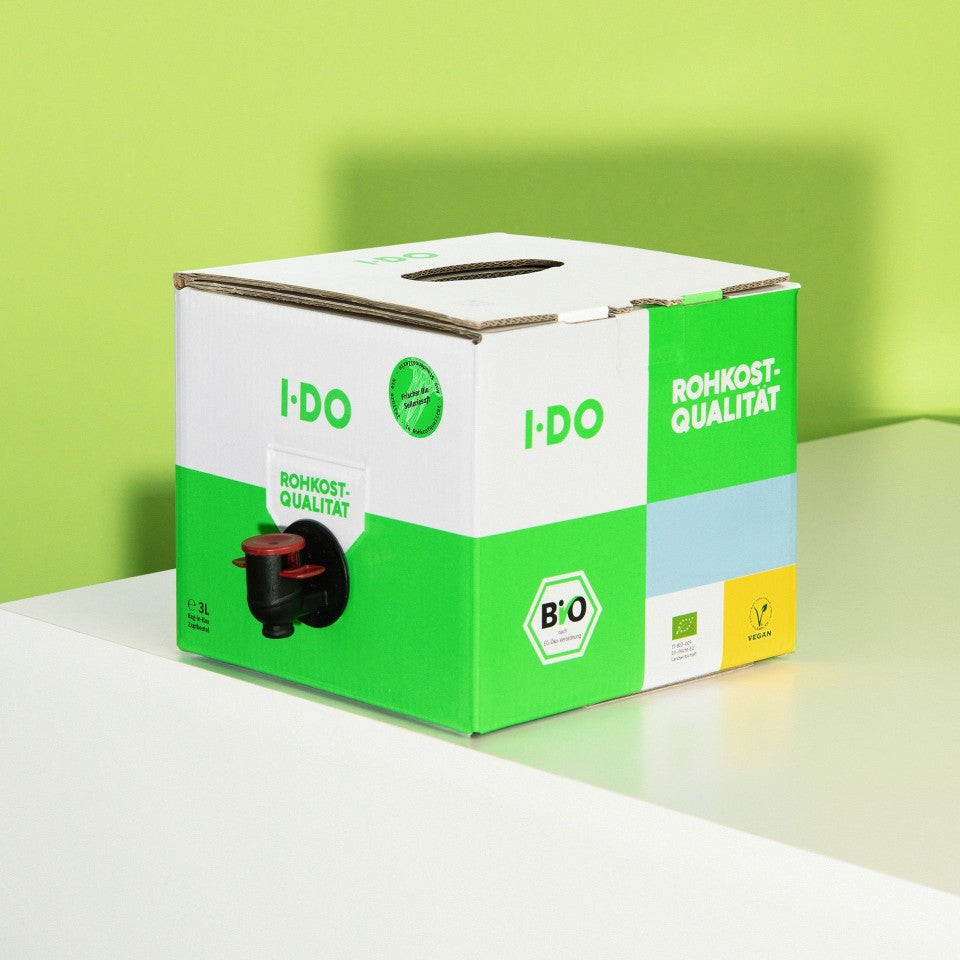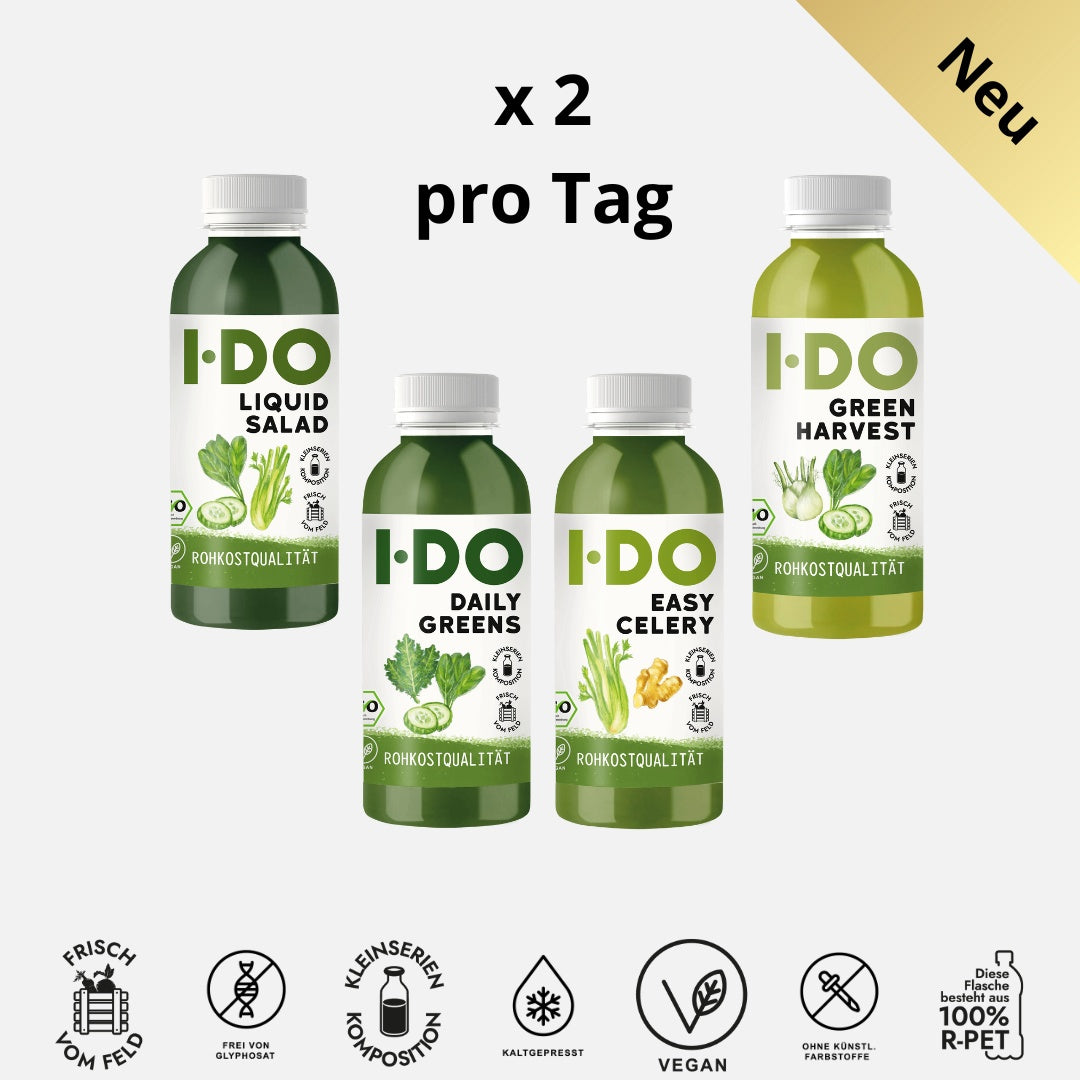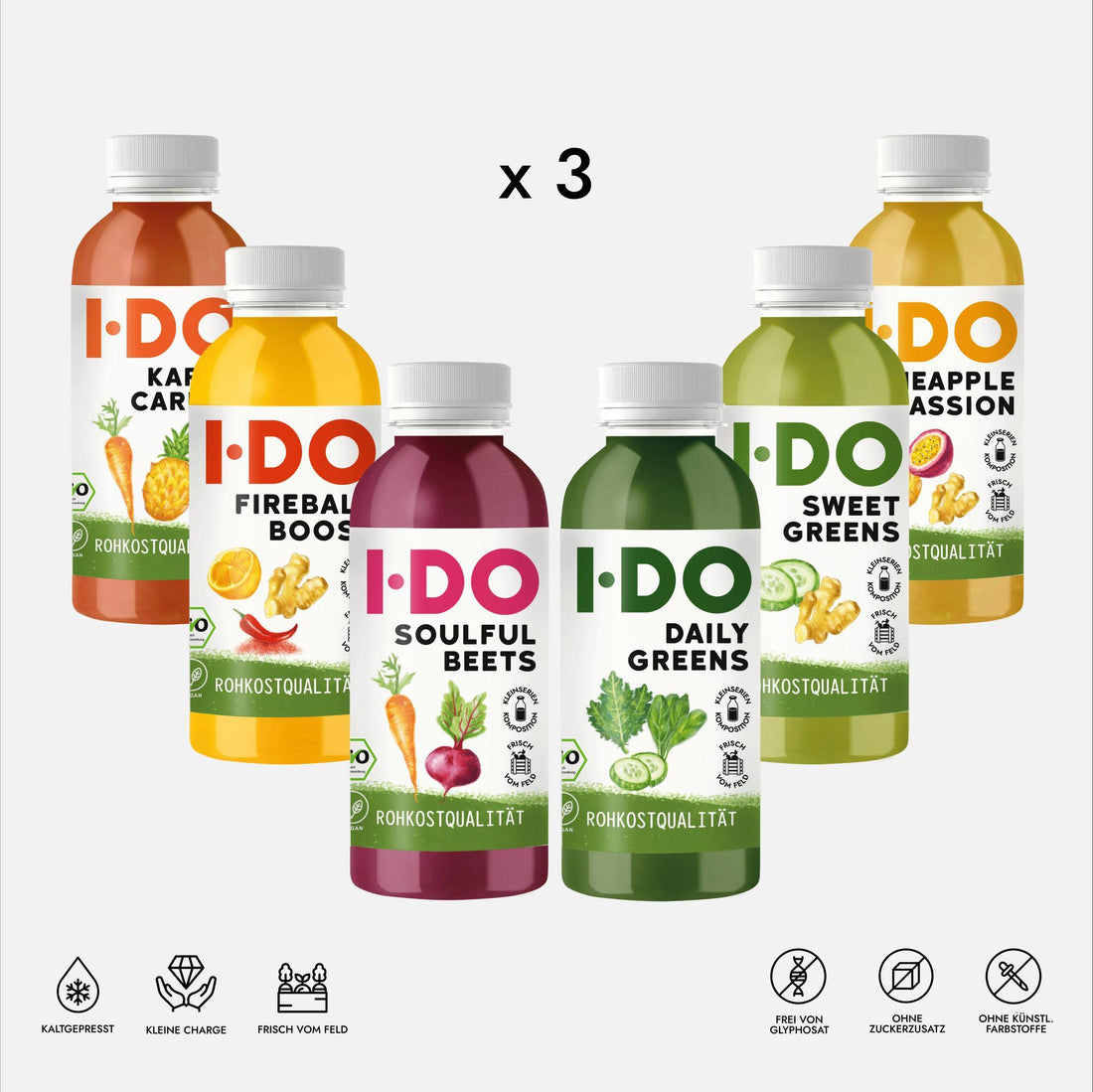Juice cleanse - definition
In recent years, few trends have garnered as much attention as juice fasting. It promises restful nights, energized days, and a clear mind. Numerous juice manufacturers offer cold-pressed juices for these cleanses online and in their stores. These are supplemented by detailed instructions and explanations on how to carry out a juice cleanse over, for example, three, five, or seven days.
These developments raise the question of how juice cleanses even came about. What effects are achieved with juice fasting? Can all the promises of cleansing juice fasting actually be fulfilled? And do these cleanses help with weight loss?
Let's first look at the significance of juice cleanses and the definition of a health retreat. A health retreat is a targeted break that allows the body a respite from everyday life. There are various types of health retreats, such as thalassotherapy, climate therapy, or brine baths . A health retreat typically lasts several days or weeks and can include treatments such as massages, baths, or special diets. Health retreats are often offered in specialized health hotels or facilities and are supervised by qualified staff. They provide the opportunity to consciously take time for oneself and leave everyday life behind.
A juice cleanse is a special type of cleanse. For a limited period, solid food is avoided, and only juices and smoothies are consumed. Juice cleanses are popular with people who are looking for a simple way to consciously plan their diet or take a break from their usual eating habits.
A little history about the definition of a spa treatment…
Juice cleanses experienced their major "boom" in the early 2000s. At that time, the following definition was used: "A juice cleanse, based on a regenerative approach, helps to achieve clearer skin, lose weight, and feel like new."
The modern juice cleanse dates back to 1976, when Stanley Burroughs published the book "The Master Cleanse , " which gave rise to the "Master Cleanse" concept . You've probably heard of it: A mixture of lemon juice, maple syrup, and cayenne pepper replaces all solid food intake for 10 days. After this period, you can slowly start eating soup again, and after a few days, fruits and vegetables can be reintroduced into your diet. However, meat and dairy products are not recommended.
The idea of a juice cleanse didn't originate in 1976, but much earlier . Fasting was already seen as a spiritual practice in ancient Greece. In modern times, particularly in the 20th century, many people used fasting as a way to cleanse their bodies of toxins and achieve improved health. However, there was some controversy surrounding these benefits, or even the potential harmful effects of fasting.
The Gerson Therapy
In the 1930s, physician Max Gerson introduced a special diet to treat diseases such as tuberculosis and cancer. The so-called Gerson Therapy is based on the idea that illnesses are caused by poor nutrition and environmental pollution. Therefore, detoxifying the body and eating a healthy diet are believed to contribute to healing. The Gerson Therapy includes a diet rich in fruits, vegetables, and freshly pressed juices. It is low in animal products, fats, and salt, but rich in vitamins, minerals, and enzymes. It also incorporates a variety of detoxification techniques, such as liver compresses, enemas, and specific medications to rid the body of toxins. The Gerson Therapy served as the foundation for the juice cleanse known today.
The Gerson Therapy and the juice cleanse are both based on a diet rich in fruits and vegetables and aimed at detoxifying the body. The main difference between the two is that the Gerson Therapy takes a much more comprehensive approach, incorporating various detoxification techniques as well as specific medications to cleanse the body and boost the immune system.
While a juice cleanse is typically performed for a limited period of a few days to two weeks, the Gerson Therapy can last for several months. The Gerson Therapy also involves the use of enemas to rid the body of toxins, as well as specific medications that target metabolism and the immune system. The Gerson Therapy is even used as an alternative treatment for diseases such as cancer and diabetes.
What is the current definition of a cure?
Juice cleanses are extremely popular these days, and there are countless variations. The reasons for juice fasting range from detoxifying the body and achieving weight loss to supplementing one's diet with a greater variety of fruits and vegetables. Juice cleanses have undoubtedly become an important part of wellness culture.
Thanks to historical records and modern science, we know that a healthy person reaches their physical limits after a fast of about 40 days . For this reason, overly ambitious and prolonged fasting periods should be avoided. The good news is that the positive effects of fasting can be achieved after a much shorter time. Accordingly, recommended fasting periods typically range from six to 14 days.
Prepare your juice cleanse
Careful preparation and proper follow-up usually require two to three weeks. Those who want to lose weight quickly shouldn't expect too much from a ten-day fast, as weight loss is only temporary in most cases. Usually, weight returns to pre-fast levels after the juice cleanse if old eating habits are resumed. Therefore, a ten-day fast should not be seen as a solution for (permanent) weight problems.
Some people regularly practice juice cleanses as part of their lifestyle, for example, once a month or every few months. Many report that in the long run, this not only leads to weight loss but also increases their energy and improves their overall health.
An exception is the possibility of using fasting for the long-term modification of harmful eating habits and for understanding how the body functions. Good preparation is essential for a juice cleanse. This ensures that the body is not overwhelmed by the switch to a purely liquid diet. It is recommended to prepare the body for the cleanse several days beforehand and to wean oneself off unhealthy eating habits. This includes, for example, avoiding animal protein, sugar, cigarettes, coffee, and alcohol, and instead drinking plenty of water and unsweetened herbal tea. Solid food is avoided throughout the entire juice cleanse to relieve and cleanse the body. A juice cleanse can therefore be an effective method for detoxifying the body and replenishing energy.
We believe that fasting in shorter, cyclical periods has a greater effect than long fasts, as this allows the body to gradually increase its basal metabolic rate. Our IDO customers, who typically complete three-, five-, or eight-day IDO juice cleanses , confirm our belief.
What trends do you know that have lasted for so many years? Once the beneficial effects of a juice cleanse become noticeable, it's no longer considered a "cool fad." Instead, many people describe juice cleanses as a true aid to feeling comfortable and happy in their own skin again. Now it's up to you to try it for yourself!
Order one of our IDO juice cleanses directly and bring your body back into balance.











